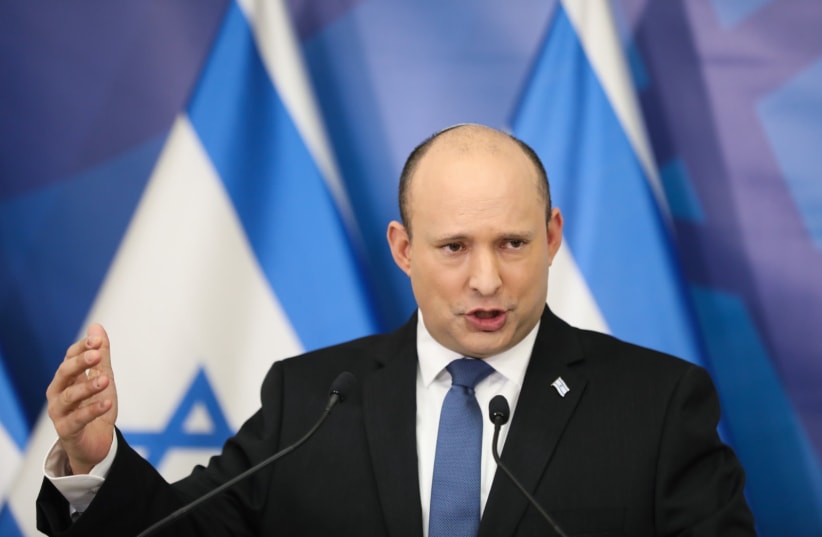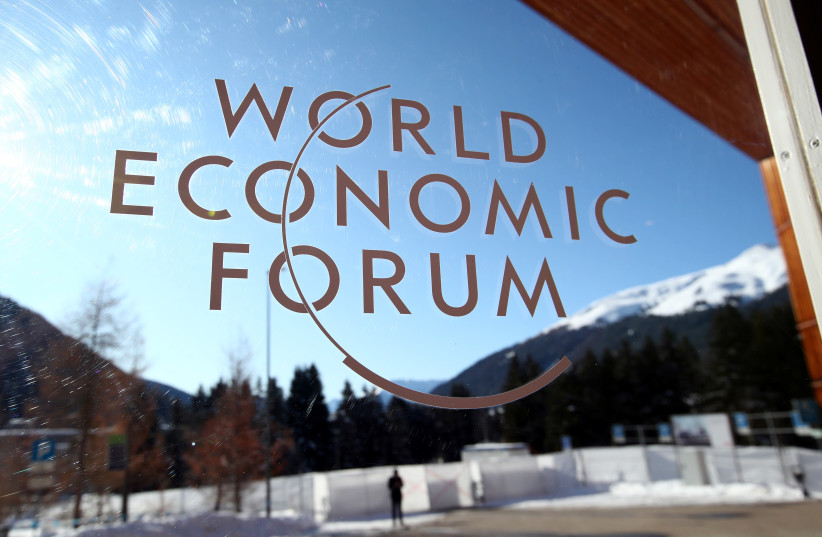An Iran deal acceptable to Israel would not allow the Islamic Republic to enrich uranium at high levels, Prime Minister Naftali Bennett said Tuesday in a video conference with the World Economic Forum in Davos.
Asked what kind of agreement between world powers and Iran would be one Israel approves of, he responded: “Effectively, that Iran has to give up its nuclear-weapon program.”
“Why would anyone legitimize their right to enrich uranium at a massive capacity?” Bennett asked. “They are now enriching at 60% grade in these huge factories. Why are they doing it? You don’t need 60% [enriched] uranium for anything but a nuclear weapon.”
His remarks come as the P5+1 negotiates with Iran to return to compliance with the 2015 nuclear deal, which restricted Tehran’s uranium enrichment to 3.67% and cut almost all of its stockpile of enriched uranium.
The US and the E3 – France, Germany and the UK – have questioned how seriously Iran is taking the talks, which they say are moving too slowly and that there is only a matter of weeks for the 2015 agreement to still be relevant.
Bennett cited the Iranian nuclear archive that the Mossad smuggled into Israel in 2018 as evidence that “these guys are trying to develop a nuclear weapon.”
“I don’t see any rationale why it makes sense for the free world to sign a deal that would give them money and at the same time allow them to continue” enriching uranium at high levels, he said.
Bennett warned against lifting sanctions on Iran, saying that would bring “terror on steroids.”
“Everything we’re seeing will be doubled and tripled because they’ll be much stronger,” he said.
Bennett reiterated his metaphor of Iran as an octopus, with its head safe in Tehran while it stretches its arms across the Middle East to commit acts of terrorism and destabilize the region in Lebanon, Syria, Iraq, Yemen, the Gaza Strip and elsewhere.
He called on “decent countries, the free world to call Iran out on what it is doing. They are the source of terror in the Middle East and we have to fight back.”
Bennett also spoke in praise of the Abraham Accords and said he hopes to establish more ties for Israel in the region.
“We have a common foe in the region, that’s Iran, and we need [to work with] countries that want to fight radical Islam,” he said.
Abraham Accords countries “are coming to see Israel as an anchor of stability in a very tumultuous region – not only in a security sense but also in our economy,” he added.
Bennett cited his meetings with Jordan’s King Abdullah and Egyptian President Abdel Fatah al-Sisi as part of his outreach to the region and said he wants to “inject more content into these relationships.”
Regarding the Palestinians, Bennett said Israel has made moves to improve their quality of life, including increasing the number of permits to work in Israel and greater integration into the hi-tech sector.
“My first policy is to improve quality of life for everyone here,” he said. “I believe that business, the economy and jobs is the most sustainable way to bring stability.”
However, “we have to be cognizant of the fact that there is a meaningful terror threat from the Palestinians to Israel that we have seen time and again, even in the past few weeks,” Bennett said.
“I want to be very clear about that,” he added. “I won’t do anything that can threaten Israel’s security or weaken our ability to defend ourselves by ourselves. Ultimately, the Palestinians have a big choice to make – whether they want to go down the path of terror or peace and prosperity... We here are very positive about prosperity and people-to-people peace.”

